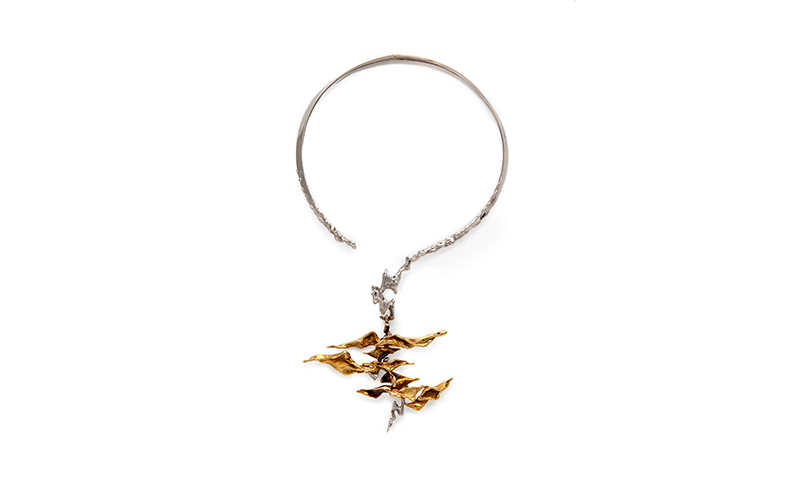- Events & Programs Home
- Calendar
- Accessibility
- Adults
-
Families & Teens
- Families & Teens Home
- 10x10 Teen Art Expo
- Art on the Rise
- Art Together: Art Making for Families with Children Ages 3–5
- Babies Sing with May Festival Minis
- Boy Scouts / Girl Scouts
- CAM Kids Day
- Family Storytime and Gallery Walk
- Family Studio: Art Making for Families with Children Ages 6–12
- Games in the Galleries
- Members-Only Baby Tours
- Public Baby Tours
- REC Reads
- Rosenthal Education Center (REC)
- Saturday Morning Art Class
- See Play Learn Kits
- Summer Camp
- Teen Fest: Zine and Comic Exchange
- RECreate
- Teachers
- Community Outreach
- Fundraisers
- Plan Your Own Event

- Events & Programs Home
- Calendar
- Accessibility
- Adults
-
Families & Teens
- Families & Teens Home
- 10x10 Teen Art Expo
- Art on the Rise
- Art Together: Art Making for Families with Children Ages 3–5
- Babies Sing with May Festival Minis
- Boy Scouts / Girl Scouts
- CAM Kids Day
- Family Storytime and Gallery Walk
- Family Studio: Art Making for Families with Children Ages 6–12
- Games in the Galleries
- Members-Only Baby Tours
- Public Baby Tours
- REC Reads
- Rosenthal Education Center (REC)
- Saturday Morning Art Class
- See Play Learn Kits
- Summer Camp
- Teen Fest: Zine and Comic Exchange
- RECreate
- Teachers
- Community Outreach
- Fundraisers
- Plan Your Own Event
Necklace by Pierre Sterlé
Necklace by Pierre Sterlé
- Home
- Plan Your Visit
- Art
-
Events & Programs
- Events & Programs Home
- Calendar
- Accessibility
- Adults
-
Families & Teens
- Families & Teens Home
- 10x10 Teen Art Expo
- Art on the Rise
- Art Together: Art Making for Families with Children Ages 3–5
- Babies Sing with May Festival Minis
- Boy Scouts / Girl Scouts
- CAM Kids Day
- Family Storytime and Gallery Walk
- Family Studio: Art Making for Families with Children Ages 6–12
- Games in the Galleries
- Members-Only Baby Tours
- Public Baby Tours
- REC Reads
- Rosenthal Education Center (REC)
- Saturday Morning Art Class
- See Play Learn Kits
- Summer Camp
- Teen Fest: Zine and Comic Exchange
- RECreate
- Teachers
- Community Outreach
- Fundraisers
- Plan Your Own Event
- Give & Join
- About
- Tickets
- Calendar
- Exhibitions
- Collections
- Blog
- Shop
- Art
- Exhibitions
- Longing: Painting from the Pahari Kingdoms of the Northwest Himalayas
- What, Me Worry? The Art and Humor of MAD Magazine
- Special Features
- Upcoming Exhibitions
- Past Exhibitions
- Online Exhibitions
- Explore the Collection
- Provenance and Cultural Property
- Conservation
- Meet the Curators
- Digital Resources
- Art Bridges Cohort Program

Pierre Sterlé (French, 1905–1978), Necklace, circa 1970, white and yellow gold
Audio Description
A French jeweler, Pierre Sterlé made this white and yellow gold necklace. Sterlé lived from 1905–1978 and made this necklace around 1970.
This necklace is a hoop of white gold that does not close at the center front. As it nears the front, the hoop becomes textured. An irregularly shaped white gold piece is linked to a yellow gold shape that resembles waves of the sea, stacked one upon the other with empty spaces between them. Some white gold shapes are intermingled with the yellow gold.
Label Copy
A French jeweler, Pierre Sterlé made this white and yellow gold necklace. Sterlé lived from 1905–1978 and made this necklace around 1970.
One of the earliest French jewelers to explore new styles, Pierre Sterlé opened his first boutique in Paris in 1945. But as early as 1939, he was producing pieces under his own name, designing for major jewelry houses, and taking private commissions. By the 1950s, Women’s Wear Daily and the New York Times were reporting on his work. Descriptive words like imaginative, dramatic, experimental, and contemporary were used to describe his jewelry.
Often treating gold like fabric, Sterlé was known for his braided, twisted, and knotted styles and the dynamic qualities apparent in his jewelry. Sterlé’s sense of lively fluidity is expressed in this necklace. The smooth hoop begins to vibrate with texture as it approaches the center front. The pendant is alive with nervous energy, perhaps referencing a flock of birds, fluttering leaves, or waves in the sea.
Back to Materials, Texture, Sculpture Back to the Audio Exhibition
Cincinnati, OH 45202
Toll Free: 1 (877) 472-4226
Museum Hours
Museum Shop
Terrace Café
Library
Cincinnati Art Museum is supported by the tens of thousands of people who give generously to the annual ArtsWave Campaign, the region's primary source for arts funding.

Free general admission to the Cincinnati Art Museum is made possible by a gift from the Rosenthal Family Foundation. Exhibition pricing may vary. Parking at the Cincinnati Art Museum is free.
Generous support for our extended Thursday hours is provided by Art Bridges Foundation’s Access for All program.

General operating support provided by:



